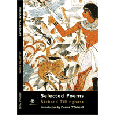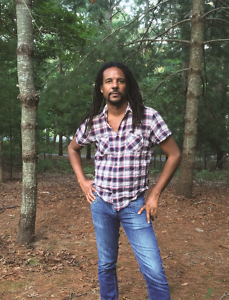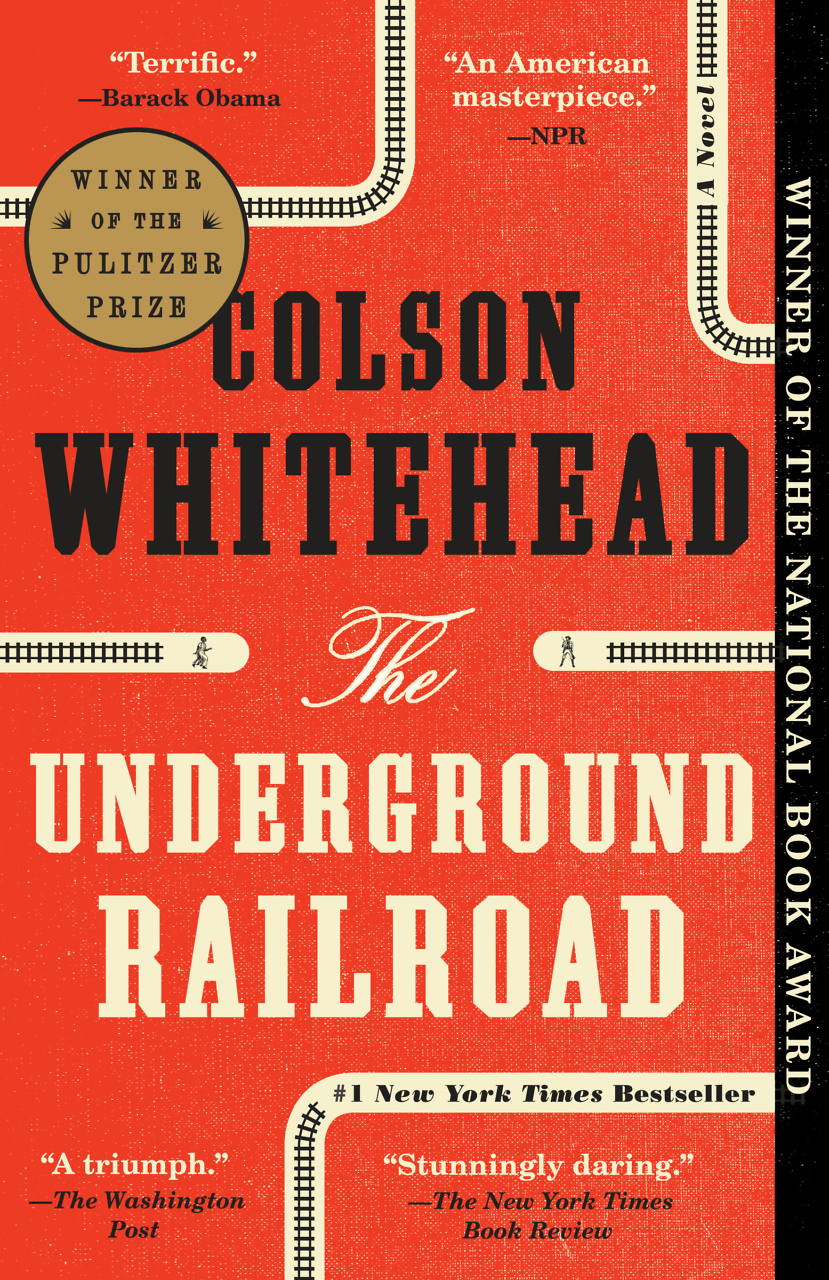Resisting the Noise
Jess Walter talks about his problem with Al Gore, the difficulty of signing a human breast, how Shakespeare would fare in Hollywood, and why it took fifteen years to write his newest novel, Beautiful Ruins
Jess Walter is more than a novelist, more than a poet, more than a journalist: he’s that old-fashioned kind of author who can fairly call himself, simply, a writer. Walter writes novels (six of them so far), short stories (his first collection, We Live in Water, was released earlier this year), poems (he says he’s written only two that he actually likes, although his fifth novel, The Financial Lives of the Poets, is full of them), journalism (criticism and features for the likes of Harper’s and Esquire), narrative nonfiction (his first book, Ruby Ridge, is a work of investigative reporting), and screenplays (next up: the film version of his newest novel, Beautiful Ruins.) Even as a novelist, Walter is not a hedgehog but a fox, moving agilely between genres, subjects, and literary styles, always with his finger firmly on the pulse of the world: The Zero is his 9/11 novel; The Financial Lives of the Poets considers the financial collapse in microcosm; Beautiful Ruins offers a hilarious send-up of reality television.
 Among other things. In fact, Beautiful Ruins is itself a showcase for Walter’s outrageous literary gifts in virtually every genre and style. Ultimately a tender love story about a provincial Italian boy and an aspiring American actress, the novel slips gracefully through both time and space, with settings that include contemporary Hollywood, the Cinque Terre region of post-war Italy, and a wild hopscotch from Rome to Edinburgh, Seattle, Portland, and remote regions of California and Idaho. Parts of this inimitably inventive novel are written in gorgeous, lush prose that might as well be poetry, while other sections are deployed in language that’s witty, sly, dark, bitter, poignant, comic, or coarse, depending on which character is featured and which form Walter uses to convey that bit of narrative. (In addition to the usual mechanisms of the novel, Beautiful Ruins includes sections of a memoir, a play, a movie pitch, and someone else’s novel.) No wonder critics have been outdoing each other with superlatives like “a literary miracle” (NPR), a “high-wire feat of bravura storytelling” (The New York Times Book Review), and “a brilliant, madcap meditation on fate” (Kirkus Reviews). “Why mince words?” wrote Richard Russo: “Beautiful Ruins is an absolute masterpiece.”
Among other things. In fact, Beautiful Ruins is itself a showcase for Walter’s outrageous literary gifts in virtually every genre and style. Ultimately a tender love story about a provincial Italian boy and an aspiring American actress, the novel slips gracefully through both time and space, with settings that include contemporary Hollywood, the Cinque Terre region of post-war Italy, and a wild hopscotch from Rome to Edinburgh, Seattle, Portland, and remote regions of California and Idaho. Parts of this inimitably inventive novel are written in gorgeous, lush prose that might as well be poetry, while other sections are deployed in language that’s witty, sly, dark, bitter, poignant, comic, or coarse, depending on which character is featured and which form Walter uses to convey that bit of narrative. (In addition to the usual mechanisms of the novel, Beautiful Ruins includes sections of a memoir, a play, a movie pitch, and someone else’s novel.) No wonder critics have been outdoing each other with superlatives like “a literary miracle” (NPR), a “high-wire feat of bravura storytelling” (The New York Times Book Review), and “a brilliant, madcap meditation on fate” (Kirkus Reviews). “Why mince words?” wrote Richard Russo: “Beautiful Ruins is an absolute masterpiece.”
On May 8, Walter will read from the novel at Parnassus Books in Nashville. Prior to the event, he answered questions from Chapter 16 via email:
Chapter 16: You’re an immensely empathetic novelist: kind of like God, you seem to love all your characters, even the terribly flawed ones—maybe particularly the terribly flawed ones. True?
Jess Walter: First, thank you. I identify with all kinds of people, and empathy is an important part of fiction but one we don’t usually talk about, I think. Having made an art of various forms of failure, it may be that I am simply drawn to characters who struggle in deep surf. A story about a Connecticut banker who leaves work early, drives in his new leased BMW to the golf course where he shoots a 78, and then drives home to where his wife has just finished Pilates class, and they find out together that their son got into Yale (just like Pop! Happy day!) simply interests me less than the homeless guy panhandling to buy a three-month-late birthday present for his son in foster care. I’m not saying it’s inherently less interesting to be rich and happy, but…. Well, yes, actually, I guess I am saying that.
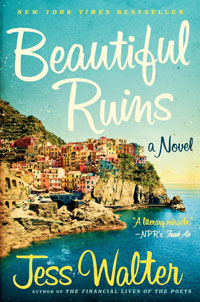 Chapter 16: Recently The Daily Beast asked who you’d bring back from the dead and why, and you said, “Al Gore. I’d make him uninvent the Internet.” (This was just before you admitted knowing that Al Gore is still alive.) I’m trying to guess what you have against the Internet, and it occurs to me that maybe the Internet is now doing to novelists what it earlier did to journalists, and that you might be imagining a day when you, too, are heading out at midnight to buy milk at the 7-Eleven like poor Matt Prior in The Financial Lives of the Poets. OK guess?
Chapter 16: Recently The Daily Beast asked who you’d bring back from the dead and why, and you said, “Al Gore. I’d make him uninvent the Internet.” (This was just before you admitted knowing that Al Gore is still alive.) I’m trying to guess what you have against the Internet, and it occurs to me that maybe the Internet is now doing to novelists what it earlier did to journalists, and that you might be imagining a day when you, too, are heading out at midnight to buy milk at the 7-Eleven like poor Matt Prior in The Financial Lives of the Poets. OK guess?
Walter: Not a bad guess, especially the 7-Eleven part, but, no, I’m not afraid the Internet will kill the novel. The novel is one tough sucker, and it adapts. No, while I am a book guy myself (prefer reading pages with a cover, and I covet and fetishize books), I don’t believe the form is ultimately as important as the contents. What bothers me about the Internet is just the noise of it, the constant connectivity, the lack of mystery and enigma, the steady stream of emails, flat entertainments, cat videos, and other distractions. It seems to me a particularly shallow, flat, fleeting, scattering, distracting medium. A novelist, especially, needs to disconnect from the world to write. Every writer is something of an expat, stepping out of the world to record his or her observations about it. This is hard to do when you’re constantly checking your email, tweeting, and updating your status. (Listen to me, I sound like I’m ninety. You kids with your flashy interweb geegaws, get the hell off my lawn!)
Chapter 16: If everyone starts buying ebooks, do you think more women will ask you to sign their breasts at bookstore events?
Walter: In a perfect world, yes. Although it’s much harder to sign a breast than one imagines. Propriety aside, there is the question of what to do with one’s other hand. (You can’t hold the page down as you might when signing a book.) Unless you’re a total creep, I think you end up signing more on the higher breastplate, closer to the clavicle. I have also signed arms, hands, a big fake tooth (a dental student), and my favorite: a series of assignment sheets from an English teacher, twenty students lined up to have me sign my name as proof they actually went to hear an author. I loved that teacher!
Chapter 16: I hate to ask you to compare your own experience as a journalist and literary autodidact to that of an M.F.A. candidate, but it’s hard not to wonder: does being a working journalist teach an aspiring novelist something that might be hard to find in an M.F.A program?
Walter: I think there are advantages that one gets as a working journalist: an ability to get out of your own way and write, a diminished fear of publishing, experience researching and asking questions, a certain knowledge of the inner workings of systems and institutions. There are also disadvantages, and the journalist has to make up for those by reading more fiction, practicing patience on the page, developing an understanding of the fictional voice, and investigating what passes for a literary culture. In general, I think we should all strive for as much education as is possible, but as a blue-collar guy and someone who always roots for underdogs, it heartens me to see writers succeed outside the usual channels.
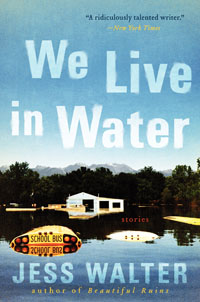 Chapter 16: You would never do it, so I’ll point out that Shakespeare didn’t go to the Jacobean equivalent of an M.F.A. program, either. Now that you’re in a “rowdy Shakespeare Men’s Group,” do you feel a sense of kinship with this earlier writer who also employed a cast of characters across every socioeconomic stratum, who also loved his flawed creations, who also skipped without pause between tragic moments and comic ones, who also seemed to write as much from a joyful sense of play as with a serious sense of purpose?
Chapter 16: You would never do it, so I’ll point out that Shakespeare didn’t go to the Jacobean equivalent of an M.F.A. program, either. Now that you’re in a “rowdy Shakespeare Men’s Group,” do you feel a sense of kinship with this earlier writer who also employed a cast of characters across every socioeconomic stratum, who also loved his flawed creations, who also skipped without pause between tragic moments and comic ones, who also seemed to write as much from a joyful sense of play as with a serious sense of purpose?
Walter: No, actually, I’m pretty sure Shakespeare went to Iowa. And honestly, I compare myself to Shakespeare all the time. I insist that my friends call me “Bard,” and I encourage readers to debate whether I even exist at all, or whether my books might be the result of several writers. (You are no doubt aware of the broad consensus among scholars now that Francis Bacon wrote Citizen Vince.) No, in fact, I beseech thee, approach thou comparison as the beasts-of-field approacheth the saltlick, and prithee to blanket my loins with more of these fancy-pants comparisons, for they hearten and embolden thy fair servant, who savours them as he might favour a goblet of sack, or perhaps a Manhattan. Up. A double.
Chapter 16: I’m enjoying making you squirm a little with this Shakespeare analogy, so let’s keep going here: Shakespeare was such a pragmatist that I always thought he’d be writing for the movies if he were alive today. Reading Beautiful Ruins, though, makes me think maybe I was wrong about that. Michael Deane is almost a fop and almost a villain, but one thing he definitely isn’t is the kind of man I like to imagine that Shakespeare must have been. You’ve written for the movies, and you’ll be working on the script for Beautiful Ruins, too. Could you see the Bard in Hollywood?
Walter: Well, to be fair, Michael Deane isn’t writing movies, or directing them. (I also think he’s not a fop but a driver of the action of the story.) I’m guessing in Shakespeare’s time there were slick, manipulative characters like Deane. I really don’t consider myself a Hollywood writer; I’ve dabbled a little, but nothing’s been made yet, and I don’t think I’ll ever like the form as much as I like writing fiction. But from what I’ve seen, there are many brilliant, creative people in Hollywood (also some morons). And yes, as Nick Hornby has noted, “Shakespeare wrote for money,” and he wrote to reach large audiences, so I could see him living in Malibu, driving up for meetings, endlessly trying to marry the high and low, to squeeze out as much art as the form will allow. It would be interesting to see how he dealt with test audiences and pitch meetings. (“So there’s this guy, Hal, and he’s got this buddy named Falstaff—Zach Galifianakis—would be perfect; his manager loves it for him….”) You also have to remember, Shakespeare would be 450 years old. (His thirty-ninth wife, however, would be twenty-six.)
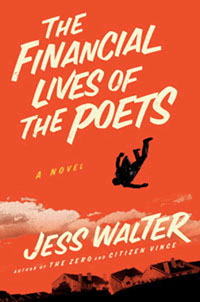 Chapter 16: You mentioned in an interview last year with The Kenyon Review that the Coen Brothers have been an inspiration to you, an observation that made me remember how worried I was for Matt Prior in The Financial Lives of the Poets. My husband kept telling me, “This is a comic novel; no way it ends badly.” And I kept saying, “That’s what you said about Fargo.” Do you decide from the beginning to keep tone and narrative trajectory consistent, or is a Coen Brothers bloodbath something that really could happen in a Jess Walter novel?
Chapter 16: You mentioned in an interview last year with The Kenyon Review that the Coen Brothers have been an inspiration to you, an observation that made me remember how worried I was for Matt Prior in The Financial Lives of the Poets. My husband kept telling me, “This is a comic novel; no way it ends badly.” And I kept saying, “That’s what you said about Fargo.” Do you decide from the beginning to keep tone and narrative trajectory consistent, or is a Coen Brothers bloodbath something that really could happen in a Jess Walter novel?
Walter: I don’t know. It makes me squirm to think there might such a thing as a Jess Walter novel. I certainly don’t go in with any notion of how a story should end, and I like to think that if a bloodbath were called for, by God, I’d fill that tub with blood and viscera and revel in it. I have had some high body counts. (My first novel, Over Tumbled Graves, was about a serial killer—the Italians translated the title to River of Dead Bodies—and Citizen Vince has at least two murders on stage, others off….) More, though, there’s nothing I like more than a tonal collision, so yes—from now on everything I write will end like Reservoir Dogs—in a bloody stalemate of murderous rage and confusion. Or with a poem. Or maybe both.
Chapter 16: The Financial Lives of the Poets took only a few months to write; you worked, off and on, at Beautiful Ruins for fifteen years. I’m guessing your other books took some time in between. Any sense now, eight books in, how long it’ll be before we can hope for another one?
Walter: Yes, this is my gestation period: somewhere between nine months and fifteen years. I just had a story collection, We Live in Water, come out this year, so I’m probably not going to make the nine months. I am working on a couple of novel-like things now, but it’s early, and I’m not in a great hurry. If there’s one thing I’ve learned it’s that one should either drink brown booze or clear booze on any given night, but never both in the same night…. No, wait, that’s not what I’ve learned. What was it again? Oh right, patience. That’s what I’ve learned. Patience. Also, the booze thing.
Jess Walter will discuss Beautiful Ruins at Parnassus Books in Nashville on May 8 at 6:30 p.m..



